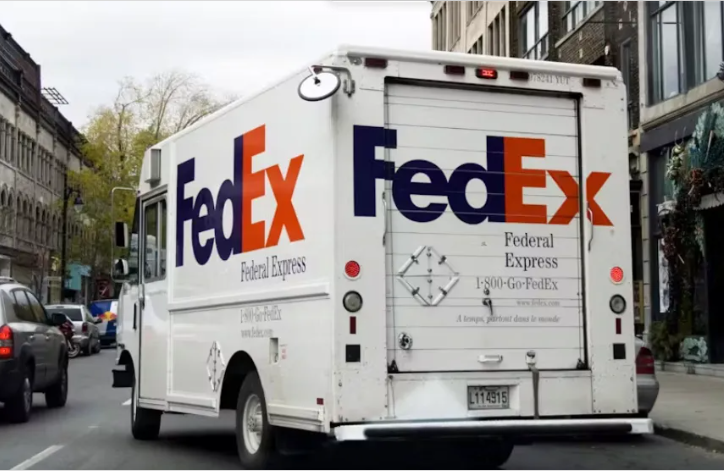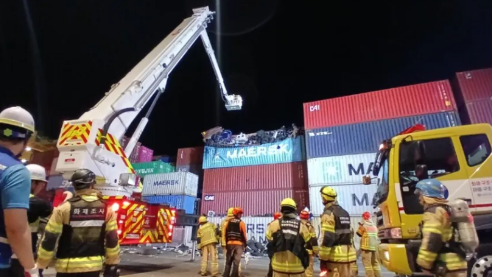Recently, the "sharp sword" of tax inspection has been unsheathed again. logistics company in Sichuan was fined 3.55 million for falsely declaring its industry category and defrauding the additional tax reduction and deduction preferences for value-added tax. tax fraud incident not only exposed industry loopholes but also sounded a compliance alarm for all freight forwarding companies.
Case Review: A "Misplaced Industry" Tax Fra Farce
Recently, the First Inspection Bureau of the State Administration of Taxation of Chengdu City disclosed a typical tax fraud case: a logistics company in S falsely filled out its industry category, disguising its business, which should belong to "transportation services", as "logistics auxiliary services", and illegally enjoyed the preferential policy of additional tax reduction and deduction, resulting in a total underpayment of taxes including value-added tax and enterprise income tax of 1.7726 million yuan
【Key Details】
Declaration Form "Transformation": In the value-added tax and enterprise income tax declaration forms, the industry category of the logistics company wastransportation services - general cargo road transport", but in the "Declaration of Applicable Policies for Additional Tax Reduction", it magically transformed into "logistics services" and declared the full amount of sales.
Policy "Exploiting Loopholes": According to the document Cai Shui [2016] No.6, "transportation services" refer to the spatial transfer of goods or passengers (such as truck transport), while "logistics auxiliary services" only provide transport support (such warehousing, loading and unloading) and belong to the category of "modern services". The main business of the logistics company (tank transport, container transport) belongs to the former, but it tried to defraud the preference through the latter.
Lie Exposed: Faced with tax inspection, Fu, the then legal representative first shirked by saying "I don't know" and "it's all filled out by the accountant", and then lied that "I have corrected the declaration form to the tax requirements", but in fact, he only modified the data for May, and the declaration forms for March and April still had not been rectified and no tax paid.
Tax Inspection "Breakthrough": Bankruptcy Liquidation Cannot Cover Up the Truth of Tax Evasion
During the inspection period, the logistics company claimed "the company has stopped operating and the account books are lost", trying to use bankruptcy liquidation as a "shield". However, the tax authorities quickly coordinated with the bankruptcy and formed a complete chain of evidence through key evidence such as comparing business contracts and invoice issuance records. ↓
Ironclad Facts: All the income of the during the inspection period came from "transportation services", and the sales revenue of "logistics auxiliary services" accounted for 0%.
Legal Determination: to Article 63 of the "Tax Collection and Administration Law", the behavior of the logistics company constitutes tax evasion, and the tax authorities have recovered the taxes, added fees, and imposed fines totaling 3.5543 million yuan according to the law.
Freight Forwarding Industry Alarm: Compliance Operation is theMoat"
This case is not an isolated example. In recent years, the freight forwarding industry has become a high-risk area for tax risks due to its long business and many tax types involved. The downfall of this logistics company once again rings a compliance bell for more peers:
Industry Category ≠ "Free Choice": The industry which a company belongs must be strictly determined according to its actual business scope. False declaration not only faces tax payment and fines but may also be listed on a "blacklist", the company's credit.
Bankruptcy Liquidation ≠ "Get Out of Jail Free Card": Even if a company enters bankruptcy proceedings, the tax authorities can still taxes through the bankruptcy administrator, and evading responsibility will only lead to heavier penalties.
Compliance cost < illegal cost: saving 1.77 million in taxes leads to a 3.55 million penalty, not mention the loss of brand reputation. Freight forwarders should establish an internal control mechanism for tax risks and regularly check their declaration data.
Freight forwarders must read: to avoid the "tax minefield"?
Business authenticity is the bottom line: ensure that the contract, invoice, and capital flow are "three consistent", and eliminate operations such as "hanging on" and "accounting".
Policy learning must be precise: closely follow the industry classification standards and preferential policies issued by the State of Taxation to avoid illegal acts due to "misreading".
Cooperation with inspections should be active: if you encounter a tax inspection, you should actively provide, and concealment or prevarication will only aggravate the penalty.
The essence of competition in the freight forwarding industry is the competition of compliance capabilities. This case tells: trying to save costs through "small cleverness" will ultimately only pay a greater price. Only by adhering to the compliance bottom line can we stand firm in the industryuffle.

Last
Logistics giant announces layoffs of 611 people
FedEx Supply Chain will lay off 611 employees in Shelby County by Oct. 11, the company reported the state labor department on Wedn

Next
A Maersk container suddenly exploded in the port! The cause has not yet been identified.
Recently, a container explosion incident occurred at the new port in Incheon, South Korea, raising concerns about port safety.Acco
